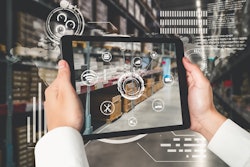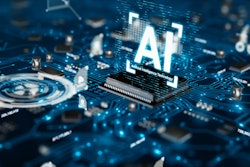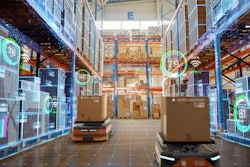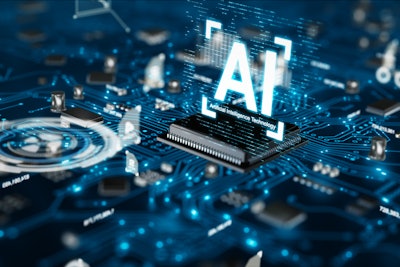
The innovative benefits of artificial intelligence (AI) go well beyond the technology industry. This technology can transform a variety of industries, from healthcare to retail to education. Food manufacturing and the food supply chain is no exception to the benefits of this technology. AI enables food manufacturers to advance their operations by improving quality control and food safety, enhancing efficiency, and more. Here are the top five benefits of using AI in food manufacturing and the food supply chain:
- Supply chain visibility and traceability enhancement
Maintaining and building consumer trust while ensuring food safety is critical for food manufacturers. And this starts with food supply chain transparency and traceability. Internet of Things (IoT) devices, an example of AI technology, are equipped with end-to-end traceability for consumers to access their food products' origin, processing, and transportation information. Additionally, using blockchain technology along with AI protects data integrity while ensuring immutability and minimizes the risk of fraud and counterfeit products entering the marketplace.
AI analytics also markedly enhances a company's supply chain transparency and can boost its response time to issues. Analytical insights made by AI can identify unauthorized substitutions or even unauthorized suppliers.
- Boost production process
Machine learning algorithms, a subset of AI, can analyze a vast amount of data collected from historical records, sensors, and production lines in the manufacturing facility. With this large data set, the algorithms can identify patterns to optimize production parameters, leading to an optimized food manufacturing process and improvements to production efficiency. Furthermore, AI algorithms can improve product turnaround time, reduce costs and increase productivity by boosting production schedules, inventory management, and supply chain logistics. AI can also enhance predictive maintenance to ensure that equipment is being used to maximum efficiencies and productivity.
- Advance food safety and quality control
Undoubtedly, gaining consumer trust is paramount for a company's success–and earning that trust starts with meeting consumer expectations and federal regulations by ensuring food safety and prioritizing quality control. Systems enabled with AI technology can detect anomalies and deviations in real-time to decrease the risk of spoiled or faulty products hitting store shelves. Moreover, with AI's computer vision technology, manufacturers can perform automated visual inspections, leading to the highly accurate identification of defects and foreign objects in the product. AI algorithms can also monitor critical control elements, such as temperature and humidity, to protect storage conditions and avoid costly mistakes like food spoilage. Documentation is critical and is frequently reviewed by government agencies and regulators. AI can be used to ensure that documentation is continuously updated meeting the current standards.
- Assists in product development and enables personalization
Consumer preferences are changing almost daily. They want and are almost demanding new and innovative products. Through the use of AI, manufacturers along with their marketing, sales and development teams can get improved information on what their consumers want. With AI, companies can personalize product selection for its customers. By using consumer data, machine learning algorithms can create food recommendations for each individual, tailored to their unique dietary preferences, allergies, and even health conditions. Another benefit of AI is its chatbots and virtual assistants. These virtual concierges can help consumers make smart nutritional choices by using machine learning algorithms to learn about each customer and help them make more informed dietary choices based on their particular needs.
AI can also help manufacturers develop new, innovative products. The AI can learn about flavor preferences, ingredient combinations, and current trends. Manufacturers can then leverage these insights to create a product that its customers truly desire.
- Increases sustainability and reduces waste
As food manufacturers move towards sustainability, reducing food waste is becoming a significant priority. And AI offers a new way to achieve this goal. Reducing food waste must start with predicting demand more accurately; companies need to look at more than just historical sales data to increase accuracy. AI algorithms can handle more data than older planning methods, making it easier to include additional data, such as customer preferences and weather patterns. Improving its demand forecasts will lead companies to better inventory management and production planning. And these improvements mean less overproduction and excess inventory, ultimately decreasing food waste.
Furthermore, AI can help streamline a manufacturer's distribution processes. By analyzing trends and data of the current marketplace, AI enables manufacturers to make informed decisions to optimize routes by reducing transportation and fuel consumption, leading to a sustainable future.
Futuristic technology solving today's challenges
Utilizing AI today can lead to an optimized future for the food industry. AI technology will only continue to advance and pilot companies that capitalize on the solution to new heights of success. Those companies that do not embrace this new technology are at risk of being left behind. To stay ahead of ever-changing customer demand and to create a safer and more sustainable food chain, food manufacturers and company leaders must welcome the innovative technology of AI.




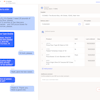
![Top Tech Logo Vertical [black]](https://img.foodlogistics.com/files/base/acbm/scn/image/2023/09/top_tech_logo_Vertical__black_.650b43c676e81.png?auto=format%2Ccompress&fit=crop&h=167&q=70&w=250)
